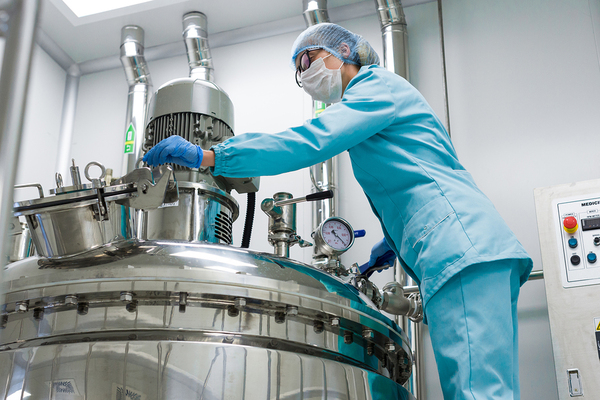Develop New Methods of Food Production with a Chemical Engineering Degree
New agricultural and food manufacturing innovations can help alleviate food shortages

Certain groups have predicted that the world may experience widespread food shortages by 2050 due to various weather and economic conditions that are expected to occur. In one possible scenario, droughts in countries around the world like Russia, India, China and Ukraine cause food production to drop, and political conditions lead to a doubling of oil prices. Furthermore, world population is expected to grow to over 9 billion by 2050, giving farmers 25 percent more mouths to feed around the world.
These conditions combine to cause food prices to increase, which makes it difficult for people to afford enough food to eat, even when it is available. While no one can predict future events like food shortages with complete accuracy, governments including the United States have decided to prepare for the possibility of shortages, which could cause wars and civil unrest if they become severe. Graduates with a chemical engineering degree are here to help.
Chemical Engineering and Food Production–Agriculture
That’s where chemical engineers come in. Part of the solution to any food shortage can be achieved through chemically engineering food production methods so that output is maximized and more people can be fed. Chemical engineers have already changed the way food is produced in many ways, and are expected to develop further advances that will help ease any potential shortages.
Although the use of herbicides and pesticides has gotten a bad name in agriculture (and for good reason in some cases), finding ways to control the spread of weeds and the infestation of bugs has led to higher crop yields that have increased food production. Chemical engineers are constantly trying to develop newer and safer ways to prevent weeds and bugs from ruining valuable produce.
Fertilizer is another way to increase the number of crops that grow in a given area. While the best fertilizers may still be natural ones, chemical engineers can analyze the soil before planting so that the right amount and type of fertilizer are used to achieve optimal soil conditions.

Chemical Engineering and Food Production–Manufacture and Distribution
After food is picked, food manufacturers often use it to create prepackaged foods that consumers can easily prepare and eat when they need a quick meal or aren’t skilled at cooking from scratch. Chemical engineers work to create food additives that can be used in processed food to create better flavors that make foods more attractive to consumers. Some of these additives may result in people eating more vegetables or in having the right combination of carbohydrates, protein and fats for a healthy meal.
Food engineers may also work with food packaging to create methods that will keep food fresh longer and delay spoilage. These methods make it possible to ship more foods around the world and to build up a supply that may be useful during food shortages like those some agencies predict may occur in the future.
Florida Tech offers a chemical engineering degree that can prepare students to work in the food production industry after graduation, helping find solutions to potential or actual global food problems that may occur. Learn more about our chemical engineering degree program today!
%CODE1%





